We all love the cozy, snowy, and nostalgic winters. However, the skin and hair conditions it brings are not so loving! The most common and frustrating gift of the frosty season is dandruff. Saying no to black tops and open hair is the saddest part about getting dandruff in winter. Those little white flakes leave a person with low self-esteem and judgmental looks.
So, here we bring tips to avert flaky scalp and earn essential vitamins for dandruff removal. Learn about the main reason for dandruff in winter and ways to avoid it.
Main Reasons for Dandruff in Winter
Dandruff is a by-product of the metabolic activities of a foreign substance, Malassezia yeasts. When this fungus reacts with the sebum, natural hair oil, it leaves a residue. The body commonly responds to this residue by producing a flaky dandruff.
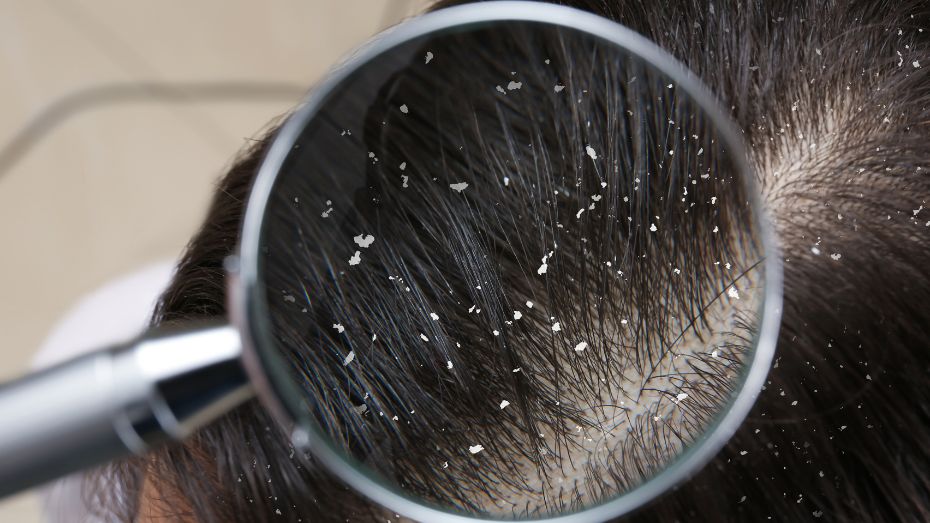
Consequently, now that you know the procedure of dandruff production, let us discuss how we can avoid these microbes that lead to dandruff in winter.
1. Dry Scalp
People with dry scalps also lose scalp flakes because of cracked skin. The cracking effect increases during winter, and the condition worsens. During winter, the skin loses its moisture faster than usual. People with dry scalp suffer more severely than others. As the scalp produces more oil to protect the hair, the Malassezia globosa fungus utilizes it. The product of this reaction is dandruff. If you have a dry scalp, dandruff in winter is a significant problem for you.
2. Infrequent Washing
It is evident that people only wash their hair sometimes during cold weather. Dirty and moist hair provides the perfect environment for growing dandruff-causing microbes. They thrive in that environment, leading to the production of flakes on your scalp. Even though you may feel sluggish and cold, remember that cleanliness is the first step to godliness. Thus, if you wish to have dandruff less hair this winter, keep consistent with your hair wash and use a good anti-dandruff shampoo.
3. Wearing Caps
If you are one of those who hardly take their hats off during cold weather, the answer to your dandruff questions is correct before you. The cap you love so much may also be the best friend of that dandruff-causing yeast. The warm temperature of your head allows these microbes to reproduce and create more dandruff. You should wear a hat to protect your ears and scalp from cold, but ensure to take it off when inside and wash it frequently.
4. Temperature effect
Another one of the many reasons for dandruff in winter could be that you wash your hair with hot water and then go out into the cold. The temperature difference can promote microbial growth in your hair. Hot showers feel like a warm hug during the cold weather but are unhealthy for your hair. So, next time, try to protect your hair from the heat, or you can hot blow dry and cover it before going out in the cold. This method will allow your head to get accustomed to the temperature.
5. Stress
It is a common belief that people suffer from winter fatigue and stress. It may or may not be accurate, but one fact that’s true is that stress can promote hormonal changes in the body, which can lead to dandruff. Stress weakens the body’s immune system, which fights foreign substances like the Malassezia fungus. So, when you are stressed, you are setting the stage for this fungus to act and create further problems in your scalp and, eventually, lower self-esteem.
6. Winter Allergies
Winters bring allergens, too. Those allergic to dust mites and molds have much to worry about. These mites promote fungal growth in the scalp and stimulate dandruff production. Allergens promote dryness in your scalp, leading to flakiness and itchiness, which increases with cold weather. Protect your hair from allergic reactions during winter by suspecting the allergen and avoiding it as much as possible. Consult a dermatologist if the situation worsens.
10 Easy Ways to Prevent Dandruff in Winter
After learning the leading causes of dandruff in winter, we must unveil the eradication methods. Here are the top ten ways to protect your hair from dandruff this winter. Take notes and try them as per your preferences.
1. Wash and Brush your Hair Frequently
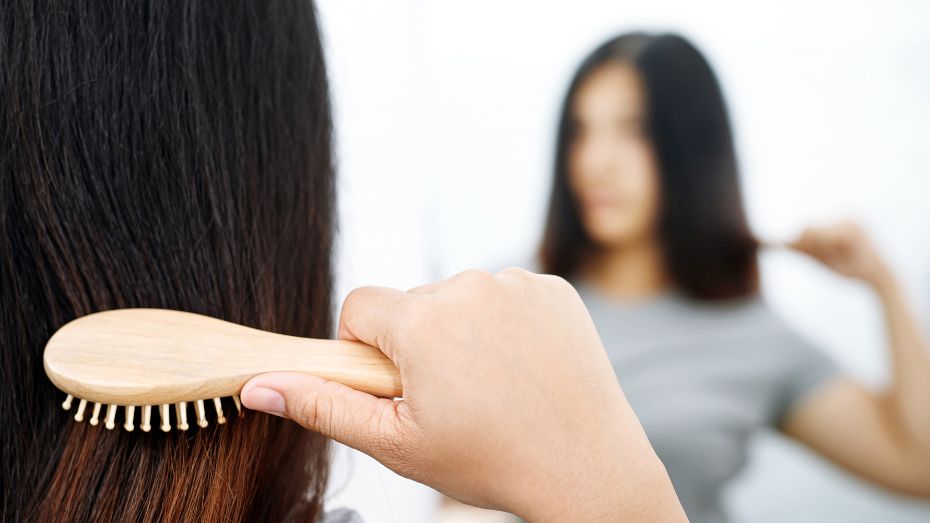
Keeping your hair clean is the first step to eliminating all the unwanted issues associated with it. Consistent washing with good products can turn the tables. It not only averts dandruff but also prevents breakage and hair fall. A clean scalp facilitates healthy hair and shine. Brush it often and detangle it to keep it hygienic so there is no microbial growth that may cause dandruff.
2. Moisturize your Hair
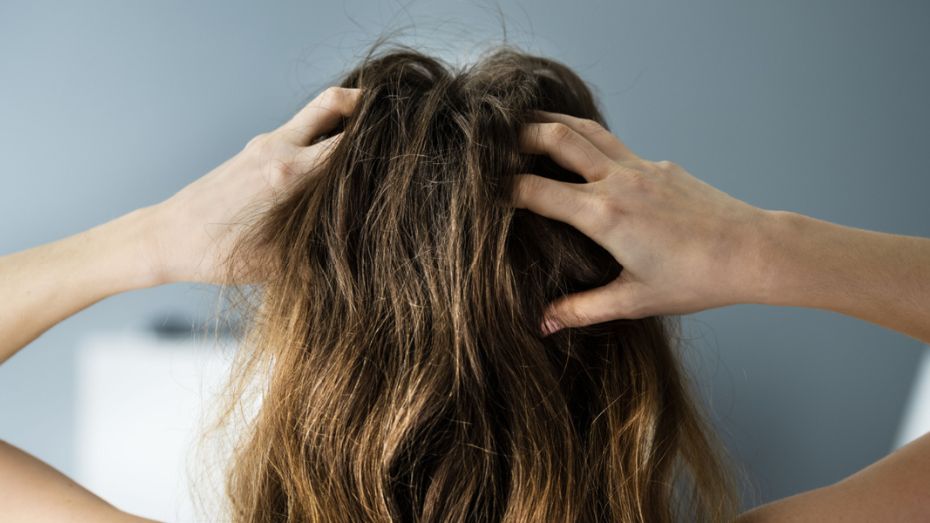
Dandruff in winter is a post-effect of a dry scalp. So, hydrate it with hair masks and hair oil. Use heat protection before using blow dryers, straighteners, etc. Do not overwash or keep your hair unwashed for a long time. Carefully check the product’s ingredients before applying them to your hair. Check if they suit your hair type and contain essential nutrients.
3. Exfoliate from Time to Time
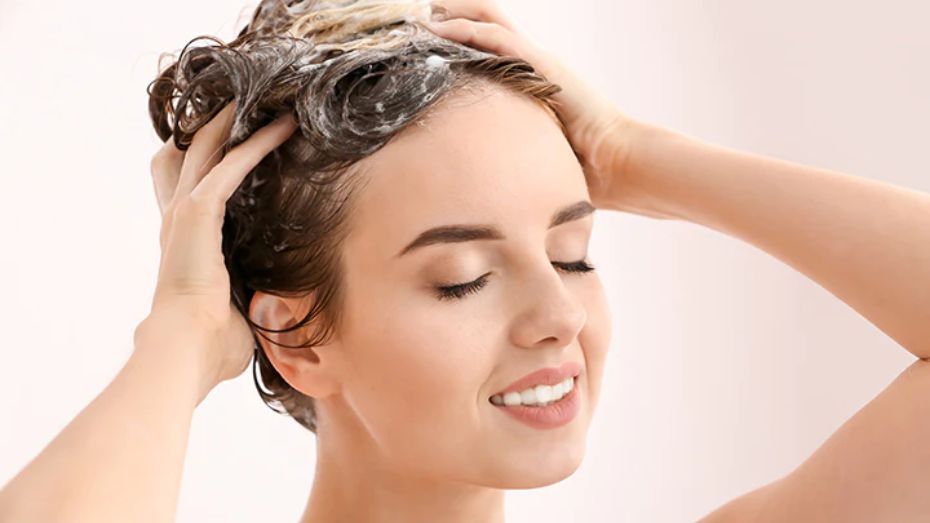
Terminate the dirt and dust particles from your scalp with a natural exfoliator. Exfoliating once or twice a week is enough for a healthy and hydrated hair. Do not over-exfoliate or use products that are too harsh. Get a hair exfoliator that best suits your hair type. Use it as directed on the pack or consult a specialist. You can also use home remedial methods such as coconut oil, brown sugar, etc.
4. Use a Good Anti-dandruff Shampoo

Head and Shoulders, Himalayan, Mamaearth, and Dove have exceptionally well-recognized anti-dandruff products for all hair types. Detect your hair type and select the shampoo and conditioner that will do best for your hair. Nothing changes if nothing changes. So, modify your hair products if you want a noticeable relief from dandruff in winter.
5. Avoid Hot showers
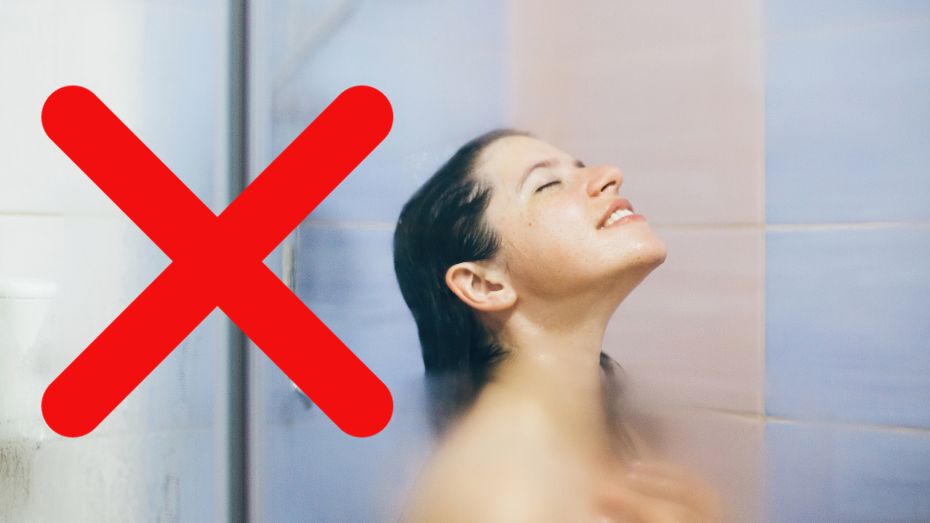
Hot temperatures are incredibly unhealthy as they strip away your hair’s natural oil. Dandruff microbes thrive in warm temperatures, and the lack of scalp oil promotes their growth. Use lukewarm water to wash and dry your hair before going out in the cold weather. Allow the hair to adjust to the temperature. Sudden differences in the temperature can also damage the scalp and cause cracking.
6. Drink Plenty of Water

Hydration does not only work externally. The body must be hydrated from the inside as well. So, drink as much water as possible to avoid irritated skin on the head. Furthermore, water helps prevent skin issues such as eczema and psoriasis, which can encourage dandruff. Four liters of water daily is enough to maintain the overall hydration of your skin and hair.
7. Maintain a Healthy Diet

To get the essential vitamins for dandruff, you must add them to your diet. So, eat healthy and nutritious meals and provide your body with the weapon to fight against the fungus. Vitamins B and D are the main components that stop fungal growth in the scalp. Take vitamin D, eat green veggies, and reduce sugar consumption to maintain a healthy diet for dandruff-free hair.
8. Keep a Clean Towel
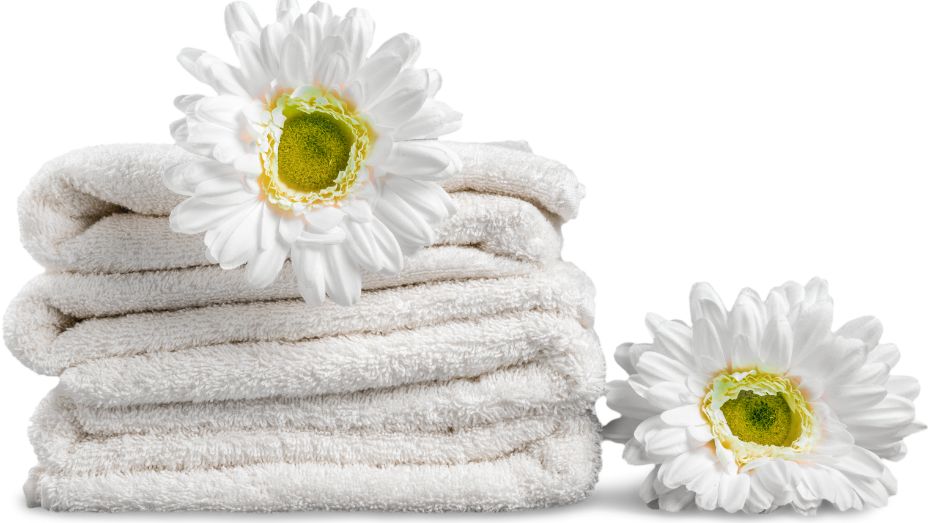
Untidy morning rituals can promote the growth of Malassezia. Do not share your towel, comb, or hair essentials, as dandruff can spread from someone else’s hair to yours. Moreover, do not use a dirty towel and wash it frequently. To avoid dandruff in winter, use good quality towels. Try a towel with pure cotton fiber instead of the Turkish ones, as they are rough for your hair.
9. Use Lemon and Coconut Oil for Dandruff

Lemon and coconut have anti-microbial and hydrating properties that are essential to stop the spread of dandruff. The two substances make a perfect tool for combating dandruff in winter. Apart from that, these home remedial recipes are handy and cheap. Instead of applying chemical-filled products, try these simple and safe methods in the comforts of your home.
10. Seek out Direct Sunlight

Sunlight supports the production of vitamin D in the skin. Allowing direct sunlight on the scalp helps get all the required vitamins for dandruff removal. Sunlight also kills the fungus behind the dandruff production. To thoroughly treat seborrheic dermatitis, expose your hair to sunlight. It is the most natural and secure method of eliminating dandruff from your scalp.
Home Remedies to Remove Dandruff
- Henna– Indian households are familiar with henna being used for dye. Apart from this, it also helps with itching and dandruff. It has anti-fungal properties to kill the fungus responsible for the dandruff. It also stops the excessive oil secretion, which facilitates dandruff production.
- Neem Juice– Neem is world famous for its anti-bacterial and anti-fungal properties. It is effective in treating the itchiness and flakes associated with dandruff. Moreover, several anti-dandruff shampoos on the market with neem extracts prove their ability to treat dandruff successfully.
- Coconut Oil and Lemon Juice– A coconut oil and lemon juice mix is an excellent source of eliminating persistent dandruff. Use the concoction twice a week to eliminate all the unwanted microbes from your scalp. This product removes the existing dandruff and stops it from spreading any further and returning.
- Egg White– The answer to your constant question, “How to avoid dandruff in winter?” is egg white. It removes the grease, dirt, and dead cells from the scalp and thwarts the growth of microbes on the scalp. It also provides a conditioning effect to the hair.
- Apple Cider Vinegar– It is known that the ACV helps balance the scalp’s PH and prevents scaling of the dead skin cells. Apple cider vinegar can reduce the fungal growth and stop the development of dandruff. You can buy it from the market or prepare it at home with only a few simple steps.
Does Stress Cause Dandruff?
Dandruff causes stress in most people because of the lack of confidence. The anxiety of constantly checking your shoulders every few minutes can leave you irritated and frustrated. However, the real question is, “Does Stress Cause Dandruff?” the answer is not that simple. Tension and pressure can affect your immune system. Malassezia yeast thrives under compromised immunity. Moreover, sweat and hormonal changes (excessive sebum production) during an anxious episode can promote dandruff.
So, if you wish to avert dandruff, relax and release your stress. Meditate, eat healthy, and practice some yoga. It will help your body restore its ability to fight these microbes and prevent dandruff.
Wind-Up
Lastly, hygiene and anti-dandruff products can help prevent Dandruff in winter. However, it is avoidable. Your body will produce at least a little bit of dandruff every year. You must learn to be confident in your skin and improve your grooming habits. People may assume that the reason for your flaky hair is unwashed and unkempt hair and the use of dirty towels. So, avoid these bad habits, work on your lifestyle, and shake off those white scales on your shoulders.
Whatever the reason may be, you have the power to overcome dandruff. Instead of questioning, “Why does dandruff occur in winter?” or “Why does my scalp get flaky so much?” Work on yourself and your hair, and flaunt those lustrous, shiny locks on the face of the earth.
People Also Ask
During winter, our scalp loses its moisture and produces more oil sebum, on which the dandruff microbe feeds. Winters leave the scalp flaky, cracked, and irritated, promoting dandruff production.
Avoid dandruff by washing your hair with lukewarm water with a good anti-dandruff shampoo, using a clean towel, and maintaining a regular diet. Further details for dandruff removal and prevention are above.
Dandruff is not directly related to stress. However, stress impacts the immune system, which fights foreign substances like Malassezia- the dandruff-causing microbes. Therefore, when you’re stressed, these microbes thrive on the low-immune body.
Mamaearth Tea Tree, Biotique Bio Neem Margosa, Dove Dandruff Clean, and Head and Shoulders are some of the best antidandruff shampoos you can try this winter.
An itchy, dandruff-prone scalp can lead to a runny nose and sneezing. It is an uncommon side effect, yet you may suffer from these symptoms.












